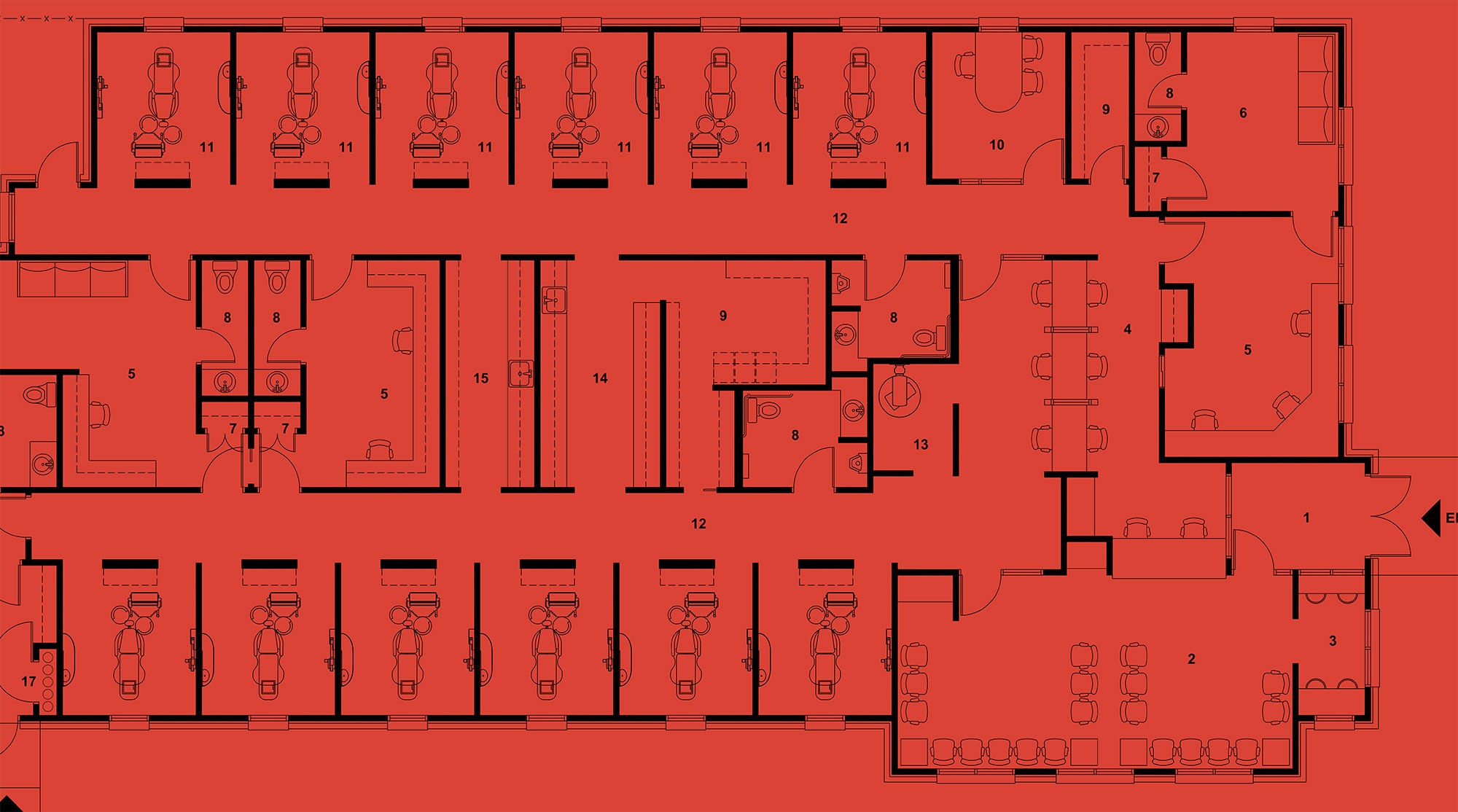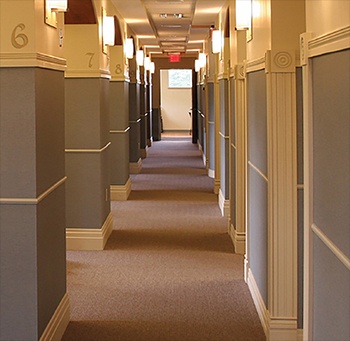How Many Dental Operatories Are Typical for a Dental Office?
Posted by HJT Design

Before you can determine a fair budget for your new dental office or even begin with the design, you first have to decide how many operatories you want to have. This is an important question to consider because the number of operatories contained within your practice can go a long way towards determining your office’s potential number of simultaneously treatable patients.
Current standards suggest that five to eight operatories may be the perfect number for any office with a single dentist, but is that the ideal number for your practice?
That largely depends on your specific needs and expectations.
Listen To The Podcast
For the Dentist
Whether you are starting up your own practice for the first time or already have an established practice well underway, studies show that the average dentist can ef fectively manage three operatories on their own. Three operatories allows plenty of capacity for high volume times in busy offices, while also being just enough for a start up to expand into.
fectively manage three operatories on their own. Three operatories allows plenty of capacity for high volume times in busy offices, while also being just enough for a start up to expand into.
Any more than this can be overwhelming even for an experienced dentist, and less can limit the number of patients that can be taken in. In general, it is expected that a single dentist will be performing procedures in two of the three rooms on a full time basis, while the third room is an overflow for emergency situations.
For the Hygienists
There is always plenty of work to keep hygienists busy in any dental office. For a practice that employs two hygienists, having two rooms set aside just for their patients will help manage the flow of traffic through the office. The dentist can handle the volume from two full time hygienists if they are able to perform their work effectively in their own operatories without need for overlapping space and equipment. Studies have also shown that hygienists can effectively work with an assistant and see more patients while using two rooms.
Equipping Rooms
One of the biggest obstacles that you will face when building your dental office is figuring out how to manage the cost of building five operatories. This includes not just the expense of the space, but also the expenses related to the equipment and furnishings for each room. It is important to focus on functionality and realize that not all operatory rooms will need the same equipment or even the same amount of space.
In fact, the dentist’s two main rooms should be multi-functional rooms that can handle any procedure, but the overflow room and the hygienist operatories can get by with far less expense up front.
Many doctors now equip their rooms with all the same equipment so that they can do same-day dentistry in their hygienist operatories . This saves the patient another office visit and can be very profitable for the dentist.
How Many Operatories?
While some dentists shoot for six operatories, and some stick with four due to budget limitations, the reality is that five is the minimum number for nearly any successful practice.
Going for too much will result in over spending, and you may never see a return on the additional expense because you will still be limited by the number of patients that you can reasonable treat at any given time.
In addition, too few rooms will prevent you from expanding your practice as you grow and establish yourself, and will limit what your practice is valued at when it is time to retire. Five operatories is the minimum amount needed for one doctor and two hygienists.
Looking For A Dental Architect?
Regardless of the complexity of your project, our staff of experienced dental construction and design professionals are ready to help navigate you through the process of designing your dental office and understand your specific needs as a dentist.
If you’re not too sure where or how to start, contact HJT to schedule a free consultation for answers to prepare and empower you in moving forward with confidence.